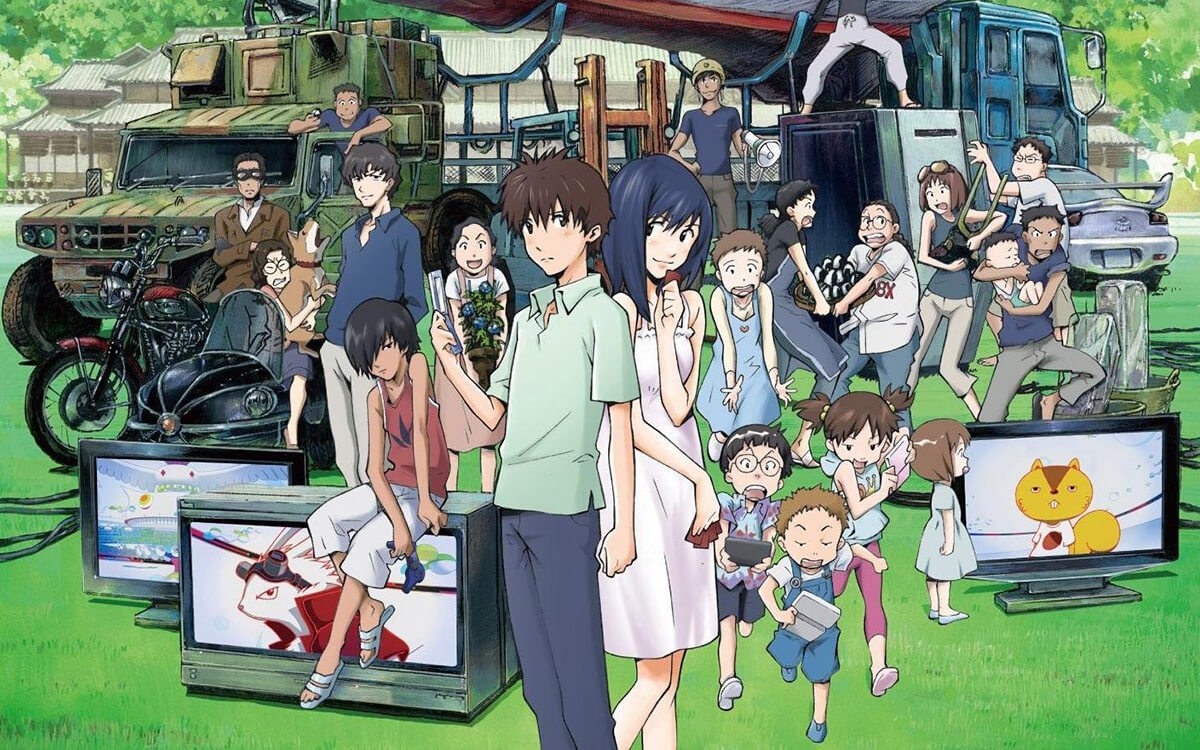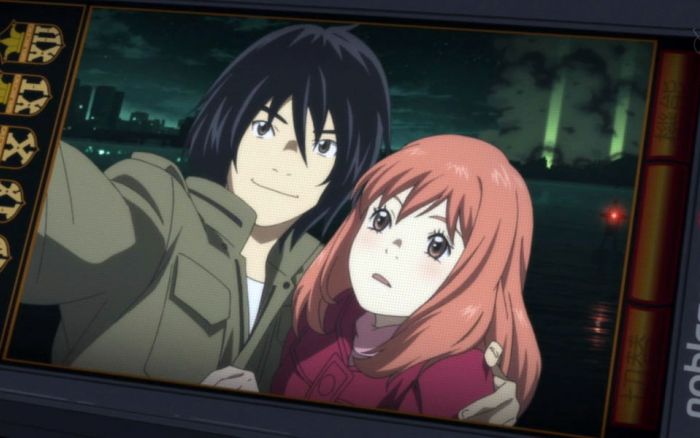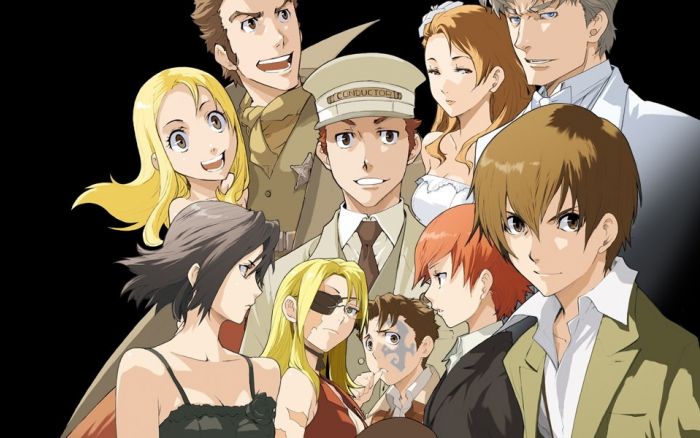An Anime Primer, #1: Eden of the East, Summer Wars, Baccano!

I was talking to a friend when the topic of anime came up. “I hate anime,” she exclaimed. Turns out, her only exposure to anime had been the episodes of Beyblade that her son watched on Netflix. When I finally saw Beyblade for myself, I completely understood her reaction; if that was my only exposure to anime, I’d hate it, too. But her reaction got me thinking: if you wanted to introduce someone to anime who had little to no experience with the artform, what titles would you recommend?
Here in America, we still consider animation to be primarily for kids (Pixar films notwithstanding). But anyone familiar with anime will tell you that it’s considerably more diverse than that. To help me, I’ve asked several friends and fellow critics to suggest titles that might serve as good examples that anime is much more than — and this might be too easy of a target — Beyblade. The subsequent list of titles spans genres, from romantic melodrama to sci-fi to historical period pieces, representing the artform’s diversity. Some of these titles are kid-safe, some would simply fly over their heads, and some are best left for adults.
Note: This will be a five-part series, with the first four parts featuring short reviews/blurbs of a number of titles and the fifth containing a list of “honorable mentions.”
Eden of the East by Kenji Kamiyama

One of the most striking things about Eden of the East is how normal it all seems. There are no mecha battles or wizard cats — just some young adults in contemporary Japan who get swept into a ridiculous conspiracy. The show, created by Kenji Kamiyama (Ghost in the Shell: Stand Alone Complex), does a fantastic job of keeping one foot in reality while the plot pushes the characters into some pretty unbelievable situations.
But what sells the show, though, is its heart. Eden of the East is a humane, mature exploration of contemporary Japanese culture, and its protagonists are remarkable (and remarkably flawed) people who are easy to care about. It also helps that the show features some outstanding animation, a sharp sense of humor, and a meticulous attention to detail that brings joy to my pop culture geek heart. — Jason Panella
Note: Eden of the East is currently streaming on Hulu and Netflix.
Summer Wars by Mamoru Hosoda

I was fairly anime-averse until encountering [Hayao] Miyazaki and [Mamoru] Hosoda. I had been exposed to Akira, Grave of the Fireflies, and similar standards, but from within this limited horizon other anime seemed either culturally out of reach or directed toward a more youthful demographic. Eventually two things happened. First, I received a screener of Hosada’s Summer Wars. Second, I picked up a copy of [Patrick] Drazen’s Anime Explosion. The latter situates anime in the tradition of kamishibai, an ancient form of Japanese storytelling marked by simple paper cut-out composition and overly-dramatic expression. This formal analogy made sense of many of the more odd conventions of anime that turn off a lot of newcomers, such as the constant blushing, over-simplified characterizations, and yawning mouths. As it turns out, much of what felt foreign to me in anime belongs to a longstanding Japanese theatrical convention.
This connection made Hosoda’s Summer Wars all the more intriguing. Like much of Hosoda’s work, the film is about family, tradition, and modernity. Layered over these basic themes is an epic, kaleidoscopic virtual battle over the future of Internet-land, fought along the same lines of loyalty and sacrifice that compel the parallel meatspace family drama. What unfolds is a story about the small gestures of family and loyalty against a visual roller-coaster near-future cyberspace canvas. The explosive animation of the climax may strike some as a bit over the top, but few other forms of media work as well in holding past and future in tension as anime. And much of the work of artists like Hosoda does so without losing sight of the basic myths of personhood.
So at least one argument for exposing yourself to good anime is that it will introduce you to an entire heritage of storytelling of which you are probably not familiar, yet offers much to audiences of any age or culture. — Michael Leary
Baccano! by Takahiro Omori

Put simply, I haven’t had as much fun watching an anime series since my initial viewing of Cowboy Bebop. Set primarily during the Prohibition era, Baccano! is a rip-roaring tale of gangsters, bootleggers, assassins, alchemists, and homunculi… oh, and something about a formula for immortality. There is a storyline to Baccano!, but following it almost seems beside the point. Indeed, given the series’ non-linear nature, time-jumping narrative, and huge cast of characters, it often feels like you’re being actively discouraged from following it. Best just to hang on tightly and enjoy the ride… and what a wild ride it is.
While it’s fun to try and unravel the mysteries of Baccano!, the most fun comes from just watching the characters and their interactions. From the ultra-ditzy Isaac and Miria (a pair of incompetents who style themselves master thieves) to Jacuzzi Splot (a tattooed bootlegger who cries at the drop of a hat), from the dastardly Szilard Quates (who wants the secret of immortality for himself) to the sadistic hitman Ladd Russo, the cast of Baccano! is colorful to say the least. Because the series involves gangsters and hitmen, it can get surprisingly and disturbingly bloody, especially when the monstrous “Rail Tracer” appears. As such, it’s not for everyone, but the series’ ability to balance horror and humor, violence and comedy is another one of its strengths.
Finally, Baccano! may be the only anime title I recommend watching dubbed rather than subtitled. The English voice actors’ exaggerated New York, Chicago, and Italian accents are perfect for a series as over-the-top as this one. — Jason Morehead
Note: Baccano! is currently streaming on Hulu and Netflix.